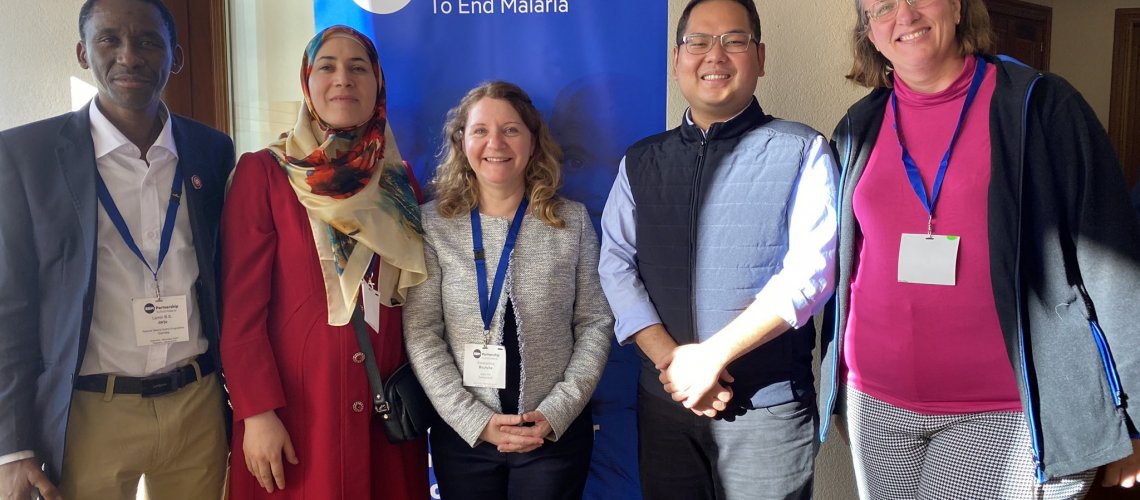
Sharing Asia Pacific experiences and flagship programs of APMEN Vector Control Working Group at RBM VCWG 15 meeting
Geneva, Switzerland
The RBM Vector Control Working Group (VCWG), is an arm of Roll Back Malaria Partnership and is a global platform that drives the discussion around vector control. It aims to align RBM partners on best practices to reach and maintain universal coverage with effective vector control interventions, covering Indoor Residual Spray (IRS), long-lasting insecticidal treated bed nets (LLINs), larval source management (LSM), new tools for vector control and integrated vector management and capacity.
The APMEN Vector Control Working Group (VCWG) and RBM VCWG are alike platforms which share similar vision and objectives but slightly different geographic focus. RBM has a strong focus on high-burden countries in Africa and Latin America, whereas APMEN focuses on mixed-epidemiology (from malaria high-burden country like India to near-elimination country like Vietnam and malaria-eliminated country like Sri Lanka) in the Asia Pacific Region. Over the years, there has been greater recognition for these two platforms to work closely together so that vector control agenda remains high in global eradication of malaria.
These two platforms have a long history of collaboration and partnership and Asia Pacific perspectives on vector control activities and challenges have been shared regularly at the RBM VCWG meetings. This year, on the invitation of RBM VCWG, two coordinators of APMEN VCWG, Dr. Leo Braack (Technical Lead) and Dr. Htin Kyaw Thu (Programme Lead) participated in the 15th annual meeting of the RBM VCWG as APMEN representatives. The meeting had wide stakeholder representation with 311 participants from 54 countries.
APMEN VCWG recently launched its flagship product to create a community of practice for vector biologists and facilitate information sharing among partners using a website called Online Resource Exchange for Entomology, ORENE. We were able to share our experience in designing and developing the concept, key features and functions of the website, and future plans. The tool is still being developed and needs further improvement. Please visit the ORENE website and write to us with any suggestions and feedback. You can also sign up on the website to get the latest update on our activities. This session helped us reach a broader global audience for further improvement of our initiatives.
Next, we shared our recent contribution to vector control capacity building in Asia Pacific through the Malaria Vector Surveillance for Elimination (MVSE) course. This course is uniquely designed to capacitate entomologist with the skills required to have robust vector surveillance activities within their NMCP. There is strong consensus about the urgent need for capacity building for vector control activities (from IVM, IRS to vector surveillance) and both RBM and APMEN agree to continue exploring opportunities for capacity building initiatives in the future.
In a panel discussion, along side other regional platforms from Africa and America, such as the Pan Africa Mosquito Control Association (PAMCA), Malaria Elimination in Southern Africa (Elimination 8), African Network on Vector Resistance, Dr. Leo Braack presented APMEN’s Asia Pacific insights, progress and challenges around vector control and malaria elimination.
The meeting concluded with strong interest in collaboration between RBM and APMEN, particularly at the implementation level and an expressed intent to continue sharing each other’s insights and experiences.
For more information,
Vector Control Working Group: Brief Overview (L.Braack)
Please follow RBM VWCG twitter to get updates.
Media coverage: https://endmalaria.org/events/15th-annual-meeting-rbm-partnership-end-malaria-vector-control-working-group
